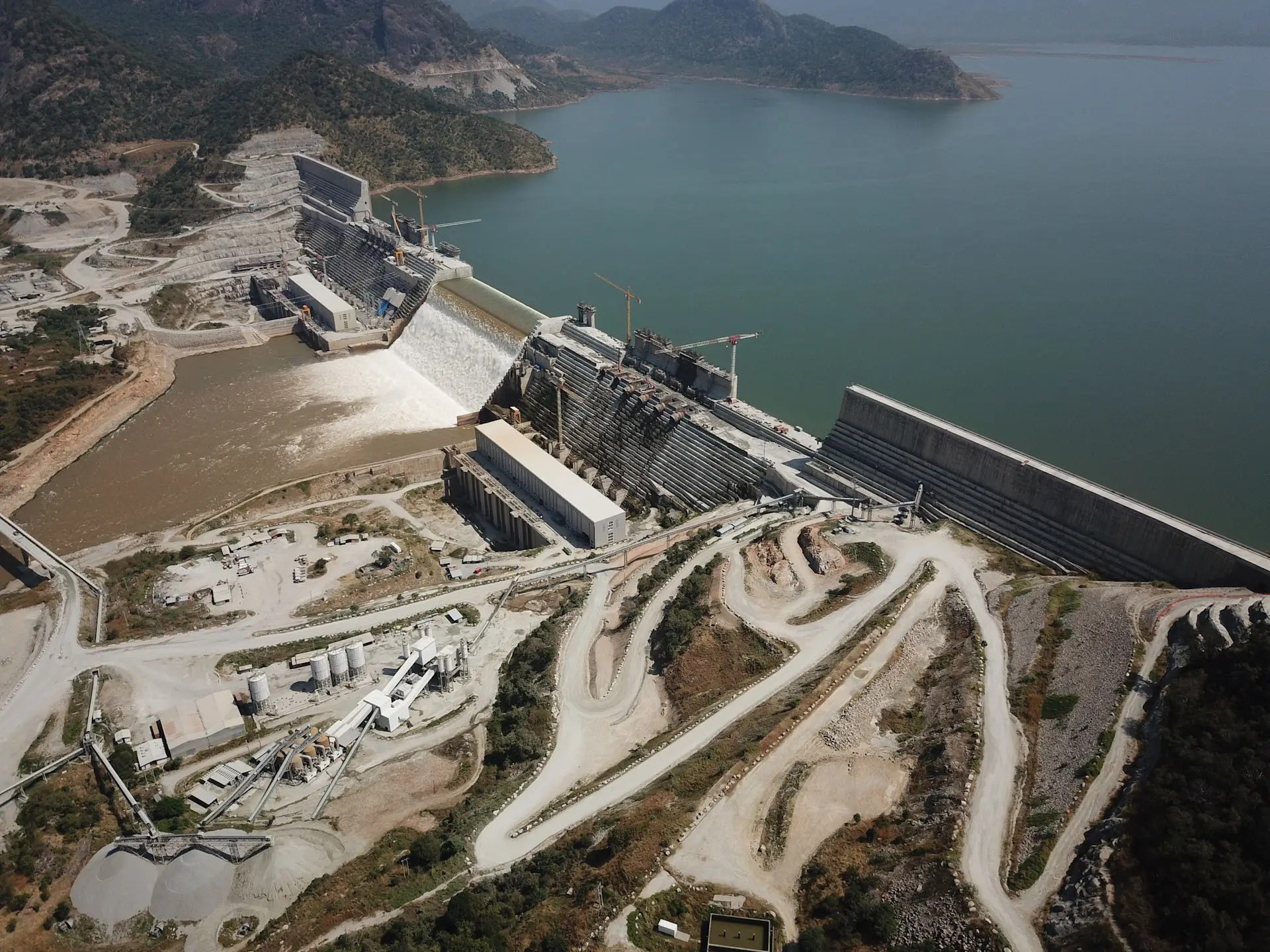Ethiopia is a new frontier for Chinese Crypto
Cryptocurrency miners drawn to cheap renewable power bringing with them investments, technology and risks

Ethiopia is emerging as a hotspot for Chinese cryptocurrency miners. Pushed out by a ban at home and attracted by plentiful inexpensive renewable electricity and favourable investment climate, over a dozen Chinese crypto mining firms have signed electric supply deals with the national utility Ethiopia Electric Power (EEP). Electricity accounts for the bulk of crypto ‘mining’ costs. Under the agreement the EEP charges miners a fixed rate of 3.15 US cents per kilowatt-hour, which is comparable to the US state of Texas, which has become a top crypto mining centre in the US. But Ethiopia has another advantage. The power rates in Texas can fluctuate significantly, making profits less predictable.
Ethiopia boasts 5,200MW of installed power capacity - 90% of which is derived from hydropower. The remainder comes from wind and thermal. The land-locked republic is also nearing the completion of the Chinese-built, but domestically funded Grand Ethiopian Renaissance Dam, which will contribute an additional 5,150MW of hydroelectricity to the grid.
 Grand Ethiopian Renaissance Dam. Photo credit: Webuild
Grand Ethiopian Renaissance Dam. Photo credit: Webuild
The primary operating cost of a cryptocurrency mining facility is expenditure for electricity. The computational effort needed to support profitable cryptocurrency mining consumes large amounts of electricity to operate the machines as well as to cool equipment to prevent overheating. Consequently, crypto mining firms are constantly seeking various alternatives to acquire substantial amounts of power at the lowest possible cost. The Cambridge Bitcoin Electricity Consumption Index (CBECI) estimates that the global electricity usage associated with Bitcoin mining ranged from 67 TWh to 240 TWh in 2023. According to its estimates in 2023 Bitcoin mining accounted for anything between 0.2% to 0.9% of the global demand for electricity. Such astronomical consumption of energy for producing digital currency of questionable value has been hugely controversial.
Earlier this year, Russian crypto mining solutions company BitCluster launched a 120MW data centre in the capital, Addis Ababa. Sergey Arestov, co-founder of BitCluster, stated that with its hydropower potential, Ethiopia is poised to become a new magnet for global mining. The attraction for the Ethiopian government is that these mining companies pay for their electricity in US dollars. Ethiopia has long faced a severe shortage of foreign currency, a situation exacerbated by instability in the country. Although the 2022 peace agreement between Prime Minister Abiy Ahmed’s government and the Tigray People’s Liberation Front concluded a two-year civil war in the northern Tigray region, conflicts persist among various groups in other areas. This has restricted the inflow of foreign currency due to diminishing tourism and international investment. Moreover, economic sanctions and the suspension of aid and loans have constrained access to hard currency.
Another reason why crypto miners are pulled towards Ethiopia is its temperate climate, owing to its high altitude. Addis Ababa is situated 2,355 meters above sea level. Cooler climates are advantageous for Bitcoin miners as they help mitigate the substantial cooling costs associated with the high levels of heat generated by mining equipment. The ideal temperature range for cryptocurrency mining is 5°C to 25°C.
The arrival of crypto mining industry in Ethiopia, however, comes with risks. Several developing countries, such as Kazakhstan and Iran, initially welcomed Bitcoin mining, only to later oppose the sector when its energy consumption threatened to stir domestic grievances. At a time when less than 50% of the country has full access to electricity, the burden of crypto mining on the national grid could face eventual domestic resistance. China’s share of global Bitcoin mining fell dramatically after the imposition of the ban on cryptocurrency mining in 2021. Consequently, the US share of the crypto market has grown.
References
‘China's top regulators ban crypto trading and mining, sending bitcoin tumbling’, Reuters, 24 September 2021
‘How Texas became a global Mecca for bitcoin mining’, CoinDesk, 24 July 2023
‘Filling of Grand Renaissance Dam on the Nile complete, Ethiopia says’, Al Jazeera, 10 September 2023
‘Ethiopia's foreign investor drive facing headwinds’, NTU-SBF Centre for African Studies, 21 November 2023
‘From the Arctic to Africa’, BitCluster, 21 December 2023
‘Chinese bitcoin miners find a new crypto haven in Ethiopia’, Bloomberg, 07 February 2024
‘Bloomberg: Chinese Bitcoin mining companies flocking to Ethiopia for cheap electricity’, Yahoo Finance, 13 February 2024
‘Ethiopia to set up large data centre amid reported bitcoin mining surge’, Reuters, 16 February 2024
‘Ethiopia's $250 million tech expansion in bitcoin and AI’, Forbes, 18 February 2024
‘EEP begins selling electric power to data miners in foreign currency’, Ethiopian Monitor, 23 February 2024
‘Power Africa in Ethiopia’, Power Africa, Accessed 27 February 2024














/enri-thumbnails/careeropportunities1f0caf1c-a12d-479c-be7c-3c04e085c617.tmb-mega-menu.jpg?Culture=en&sfvrsn=d7261e3b_1)

/cradle-thumbnails/research-capabilities1516d0ba63aa44f0b4ee77a8c05263b2.tmb-mega-menu.jpg?Culture=en&sfvrsn=1bc94f8_1)







